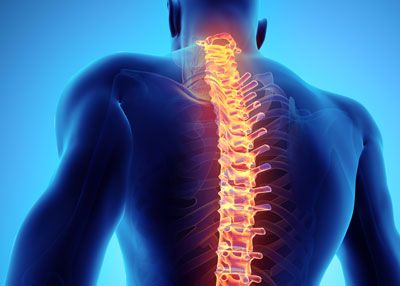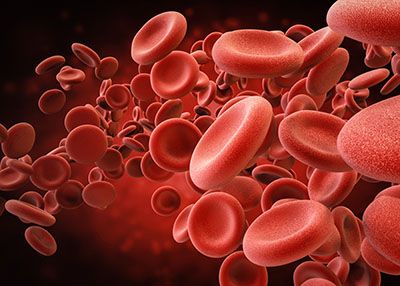What is peripheral neuropathy?
Peripheral neuropathy, in its most common form, causes pain and numbness in your hands and feet. The pain typically is described as tingling or burning, while the loss of sensation often is compared to the feeling of wearing a thin stocking or glove.
Peripheral neuropathy can result from such problems as traumatic injuries, infections, metabolic problems and exposure to toxins. One of the most common causes of the disorder is diabetes.
In many cases, peripheral neuropathy symptoms improve with time — especially if it’s caused by an underlying condition that can be resolved. Medications initially designed to treat other conditions, such as epilepsy and depression, are often used to reduce the painful symptoms of peripheral neuropathy.
Your nervous system is divided into two broad categories. Your central nervous system consists of your brain and spinal cord. All the other nerves in your body are part of your peripheral nervous system, which includes:
- Sensory nerves to receive feelings such as heat, pain or touch
- Motor nerves that control how your muscles move
- Autonomic nerves that control such automatic functions as blood pressure, heart rate, digestion and bladder function
Most commonly, peripheral neuropathy begins in the longest nerves — the ones that reach to your toes. Specific symptoms vary, depending on which types of nerves are affected. Signs and symptoms may include:
- Gradual onset of numbness and tingling in your feet or hands, which may spread upwards into your legs and arms
- Burning pain
- Sharp, jabbing or electric-like pain
- Extreme sensitivity to touch, even light touch
- Lack of coordination
- Muscle weakness or paralysis if motor nerves are affected
- Bowel or bladder problems if autonomic nerves are affected
A number of factors can cause neuropathies. These factors include:
- Trauma or pressure on the nerve. Nerve pressure can result from using a cast or crutches, spending a long time in an unnatural position, repeating a motion many times — such as typing at a computer keyboard — or having a tumor or abnormal bone growth. When peripheral neuropathy affects a single nerve, trauma or nerve pressure is the most likely cause.
- Diabetes. When damage occurs to several nerves, the cause frequently is diabetes. At least half of all people with diabetes develop some type of neuropathy.
- Vitamin deficiencies. B vitamins are particularly important to nerve health.
- Alcoholism. Many alcoholics develop peripheral neuropathy because they have poor dietary habits, leading to vitamin deficiencies.
- Autoimmune diseases. These include lupus, rheumatoid arthritis and Guillain-Barre syndrome.
- Other diseases. Kidney disease, liver disease and an underactive thyroid (hypothyroidism) also can cause peripheral neuropathy. Patients with HIV/AIDS also are prone to develop peripheral neuropathy.
- Inherited disorders. Examples include Charcot-Marie-Tooth disease and amyloid polyneuropathy.
- Exposure to poisons. These may include some toxic substances, such as heavy metals, and certain medications — especially those used to treat cancer.
Unfortunately, it’s not always easy to pinpoint the cause of peripheral neuropathy. In fact, if your neuropathy isn’t associated with diabetes, it’s possible the cause may never be found.
What are risk factors for peripheral neuropathy? Peripheral neuropathy risk factors include:
- Diabetes, especially if your sugar levels are poorly controlled
- Alcohol abuse
- Vitamin deficiencies, particularly B vitamins
- Immune system suppression, which occurs in people who have received organ transplants and people with AIDS, among others
- Autoimmune diseases, such as rheumatoid arthritis and lupus, in which the immune system attacks your own tissues
- Kidney, liver or thyroid disorders
Peripheral neuropathy isn’t a single disease, but rather a symptom with many potential causes. For that reason it can be difficult to diagnose. To help in the diagnosis, your doctor will likely take a full medical history and perform a physical and neurological exam that may include checking your tendon reflexes, your muscle strength and tone, your ability to feel certain sensations, and your posture and coordination.
Your doctor may also request blood tests to check your level of vitamin B-12, a urinalysis, thyroid function tests and, often, electromyography — a test that measures the electrical discharges produced in your muscles. As a part of this test, you’ll be asked to have a nerve conduction study, which measures how quickly your nerves carry electrical signals. A nerve conduction study is often used to diagnose carpal tunnel syndrome and other peripheral nerve disorders.
Your doctor may recommend a nerve biopsy, a procedure in which a small portion of a nerve is removed and examined for abnormalities. But even a nerve biopsy may not always reveal what’s damaging your nerves.
The first goal of treatment is to manage the condition causing your neuropathy. If the underlying cause is corrected, the neuropathy often improves on its own. The second goal of treatment is to relieve the painful symptoms. Many types of medications can be used to relieve the pain of peripheral neuropathy.
- Pain relievers. Mild symptoms may be relieved by over-the-counter pain medications. For more severe symptoms, your doctor may recommend prescription painkillers. Drugs containing opiates, such as codeine, can lead to dependence, constipation or sedation, so these drugs are prescribed only when other treatments fail.
- Anti-seizure medications. Drugs such as gabapentin (Neurontin), topiramate (Topamax), pregabalin (Lyrica), carbamazepine (Tegretol) and phenytoin (Dilantin) were originally developed to treat epilepsy. However, doctors often also prescribe them for nerve pain. Side effects may include drowsiness and dizziness.
- Lidocaine patch. This patch contains the topical anesthetic lidocaine. You apply it to the area where your pain is most severe, and you can use up to three patches a day to relieve pain. This treatment has almost no side effects except, for some people, a rash at the site of the patch.
- Antidepressants. Tricyclic antidepressant medications, such as amitriptyline and nortriptyline (Pamelor), were originally developed to treat depression. However, they have been found to help relieve pain by interfering with chemical processes in your brain and spinal cord that cause you to feel pain. The selective serotonin and norepinephrine reuptake inhibitor duloxetine (Cymbalta) also has proved effective for peripheral neuropathy caused by diabetes.
- Spinal Cord Stimulation. Peripheral neuropathy that does not get better with the treatments listed above may respond very well to spinal cord stimulation.




